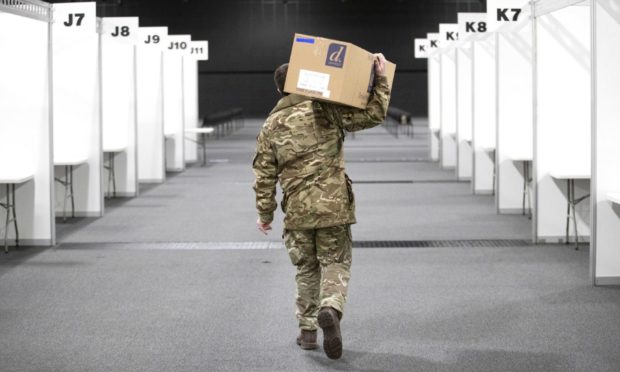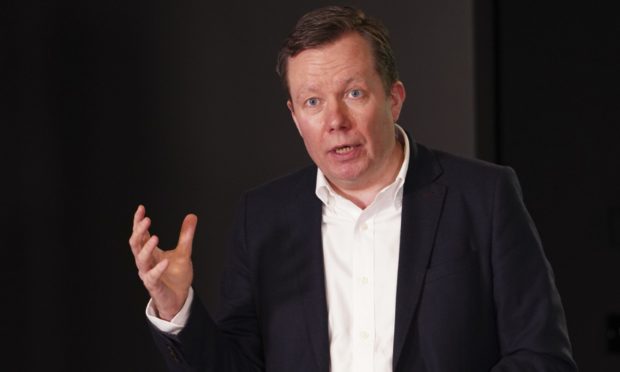The UK Government is offering to help the Scottish Government with its vaccine rollout programme, as the slow pace of injections for the over-80s continues north of the border.
In a letter to Nicola Sturgeon, Secretary of State for Scotland Alister Jack describes the Covid-19 vaccine efforts as “the most important peacetime endeavour this country has ever undertaken”.
“It is essential that all parts of the UK fight the pandemic together so we are able to
ease restrictions and exit lockdown together,” he says.
“As we have agreed previously, there are significant advantages to moving in lockstep
on major decisions.”
While there is some level of coordination between the four nations on efforts to fight coronavirus, the Scottish Government, with devolved responsibility for health issues, has conceived its own strategy for slowing the spread of the pandemic, and for administering the vaccines.
However, with Professor Jason Leitch conceding that Scotland needs to pick up the pace of vaccinations, Alister Jack is also offering more help from the British military to make that happen.
“The UK Government has invested more than £300 million in developing vaccines and
we have secured 400 million doses. It is thanks to this striking UK effort we can now
see light at the end of a very dark tunnel,” says the Secretary of State in his letter to the First Minister.
“The UK Government has established more than 50 walk-through and mobile testing
centres across Scotland.”
It’s a race against the virus, though, not a race against my colleagues in England.”
Professor Jason Leitch
Earlier on Tuesday, Professor Leitch said: “We do need to be doing it (vaccinating) faster. That’s why now we’ve gone down a level to the 70-year-olds and over 75s. They are now being done in big vaccination centres.
“We’re beginning to send letters out to those who are over 65 and those who are vulnerable.”
Explaining why over 80s have been vaccinated slowly, Leitch said a decision had been made to vaccinate that age group in their local medical practices where they would know the staff and be closer to home.
“Other countries have done that differently, that’s a choice about person-centred vaccination”.
Professor Leitch was critical of people comparing the vaccination rates in Scotland to those of England.
He said: “It’s a race against the virus, though, not a race against my colleagues in England.
“I don’t really like the competitive nature of the vaccination story. I understand why we’re doing it, it drives us on a little bit, it’s probably no bad thing.”

